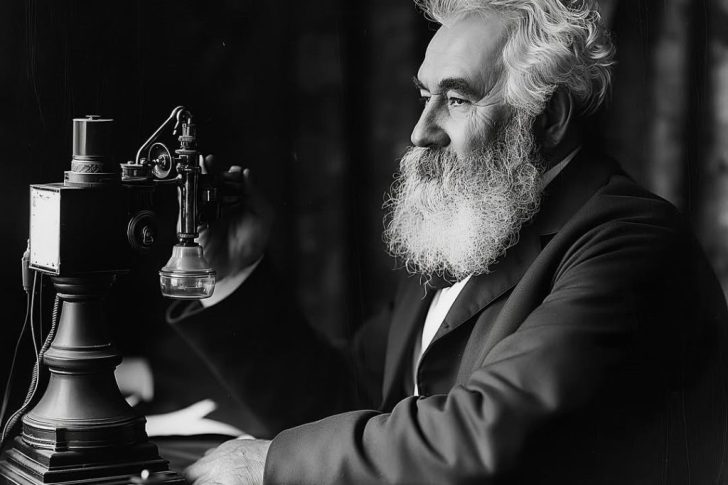The invention of the telephone revolutionized communication and had a profound impact on business growth. It provided businesses with a faster and more efficient way to connect with clients, partners, and customers. This breakthrough enabled companies to conduct transactions more quickly, expand their reach, and strengthen relationships, laying the foundation for the modern global economy.
The Dawn of Telephone Communication in Business
In the 1870s, Alexander Graham Bell secured the first patent for the telephone, narrowly beating competitor Elisha Gray. Initially, the telephone served a niche market, with wealthy individuals and large corporations primarily using it. Early telephone systems involved direct lines, where wires connected specific locations, such as between corporate offices.
This exclusive setup showcased the telephone’s transformative potential for streamlining communication. As telephone exchanges emerged, the technology became more accessible.
These exchanges centralized communication within specific geographic areas, allowing multiple lines to connect through a central switchboard. Businesses quickly adopted this innovation. Banks, doctor’s offices, and police stations became primary users, subscribing to networks for a monthly fee. This marked the beginning of widespread telephone usage in the business sector.

How Telephones Revolutionized Business Communication
The telephone drastically reduced the time required to send and receive messages, replacing slower methods like messengers and letters. Businesses leveraged this efficiency to streamline operations and build stronger networks. For example, companies connected multiple offices using telephone lines, enhancing internal communication and improving decision-making processes.
Moreover, the telephone enabled businesses to expand geographically. Companies reached new markets and customers far beyond their immediate vicinity. The telephone also provided a platform for customer interaction, facilitating inquiries and resolving issues promptly. These advantages not only boosted productivity but also increased customer satisfaction, fostering growth and loyalty.
The Evolution of Business Communication Through Telephones
As telephone technology advanced, businesses found innovative ways to connect with customers. The rise of telemarketing allowed companies to engage directly with individuals in their homes, gathering insights and promoting products. This new approach gave businesses unprecedented access to a larger audience, significantly expanding their reach.
The evolution of the telephone also introduced voicemail and automated systems, enabling businesses to operate outside traditional hours. These advancements allowed companies to remain accessible and responsive, accommodating the needs of a growing customer base. By continually adapting to these innovations, businesses ensured their competitiveness in a rapidly changing landscape.
The Impact of Telephones on Modern Global Business

The invention of the telephone set the stage for subsequent technological breakthroughs that further transformed communication. The integration of telephones with the Internet created new opportunities for businesses to connect globally. Smartphones combined the functionality of telephones with the power of computers, enabling instant communication and collaboration from virtually anywhere.
Businesses now use tools like video conferencing to hold virtual meetings, blending the convenience of telephone communication with visual presentations. These developments make it possible to conduct business on an international scale with ease. Companies can manage operations, coordinate with global teams, and maintain relationships with clients, all facilitated by the foundational innovation of the telephone.
Adapting to a World of Continuous Communication
As communication technology evolves, businesses face the challenge of staying ahead. The invention of the telephone taught companies the importance of adaptability and leveraging new tools for growth. From traditional landlines to modern VoIP systems and smartphones, the principles of effective communication remain central to business success.
By understanding the historical impact of the telephone, businesses can better appreciate its role in shaping today’s interconnected world. This awareness inspires innovation and positions companies to thrive in an ever-evolving communication landscape.
